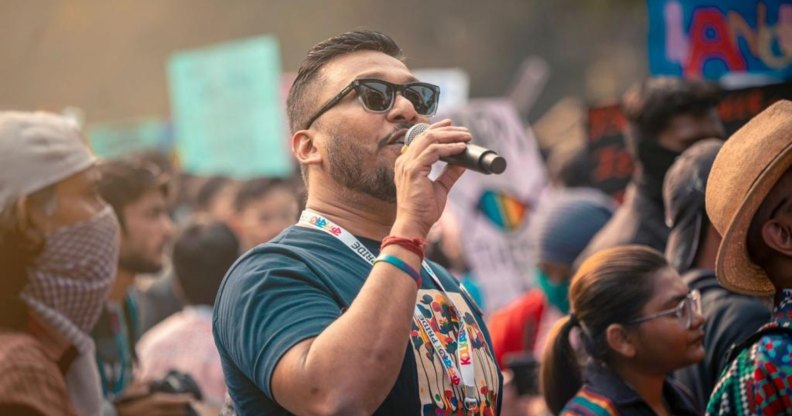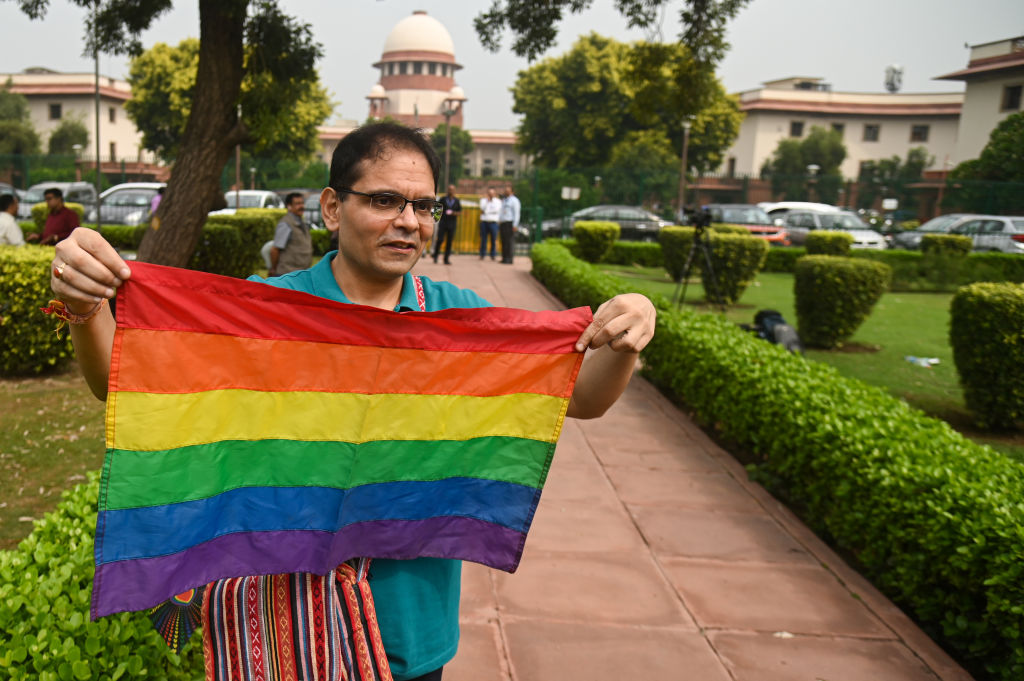India’s LGBTQ+ community ‘must demand’ equality, following crushing same-sex marriage blow

Navonil Das, an Indian queer activist, has said “militant” action is needed after the Supreme Court failed to legalise same-sex marraige. (Supplied)
An Indian LGBTQ+ activist has condemned the country’s Supreme Court for giving queer people “nothing” – and has called on the country’s queer community to demand equality.
There was a sense of disappointment and frustration within India’s LGBTQ+ community on Tuesday (17 October) as the country’s top judges laid out their decision, with the court issuing a 2-3 decision refusing to recognise same-sex marriage, arguing that the matter lies with law-makers.
Navonil Das, a queer activist with Kolkata Pride, was with other LGBTQ+ people in a community centre as the judges laid out their position. He says the first judge’s reading was “so positive” that activists were “screaming and crying”, thinking that they were on the brink of winning the hard-fought changes.
Then, it all came tumbling down.
As other judges spoke, it became clear that the verdict was not what queer people had been hoping for.
“It kind of hit us,” Das tells PinkNews. “This was nothing. This was a sham.”
He was “hoping against hope” that they would at least be given adoption rights, but even that failed to materialise.

Queer Indians are angry, Das says – and they’re not going to accept the judgement lying down. In fact, he says, the ruling has lit a fire under the community, who will now fight harder than ever to advance their rights.
“It put a dampener on our spirits, yes, but I’ve been a part of the movement for more than 20 years now and we have come a long way. For our sexuality to be discussed in such a widely circulated public forum [or] institution like the Supreme Court is [significant].
“We look at this as a stepping block that can be overcome. We were just hoping that somewhere along the way, the court would have given recognition to civil partnerships, or at least civil union rights – maybe not calling it same-sex marriage, because marriage is so intrinsically connected with the grain of society and it’s part of religious practices. It’s very difficult for people to digest.”
Without even some recognition of same-sex unions, Das believes the only way forward is for LGBTQ+ Indians to become more “militant” in their objections.
“We have to go out on the streets in droves on a regular basis, demanding equality. This year is going to see huge protests, as well as the celebration of our presence.”

His message to the those who hold power in India is simple: “Do not ignore us. Do not give us a consolation prize, because we do not want anything less than our rights.”
This latest blow comes five years after the Supreme Court decriminalised homosexuality in India.
That ruling was heralded as an enormous breakthrough for the country’s embattled queer community – and it wasn’t long before they turned their sights to marriage equality.
Delivering the judgement, India’s chief justice, Dhananjaya Yeshwant Chandrachud, said there was a “degree of agreement and degree of disagreement” in the final ruling.
“Courts cannot make law but can interpret and give effect to it,” he said. “The subject of queerness is not urban or elite.
“In the limited exploration of the literature on the subject, it makes clear that homosexuality is not a novel subject. People may be queer, regardless of whether they are from villages of cities. Not only an English-speaking man can lay claim to being queer, it is also a woman working at a farm in a rural area.”
While Chandrachud acknowledged that marriage has changed in India, he said it was ultimately up to parliament and legislatures to make decisions on such issues.
For queer Indians, the difficulty now lies in convincing the government to legalise same-sex marriage when legislators have made it clear they don’t want to – despite the fact that a majority of the estimated 1.43 billion population supports change.

